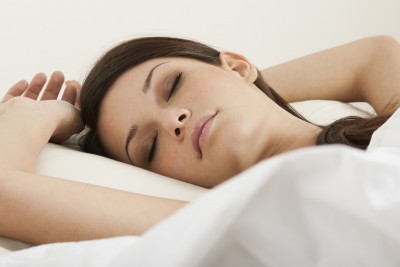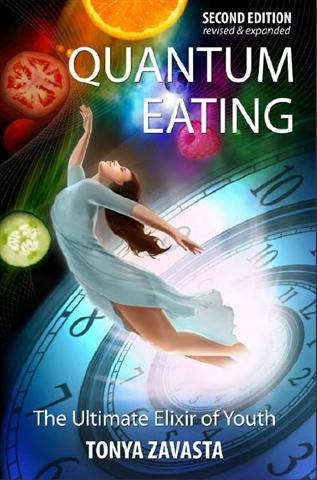How Food Affects Your Sleep?

We all get sleepy after a heavy meal. Sleeping and eating are intimately connected. After ten years on a 100 per cent raw foods regime and experimenting with different raw foods and quantities, I can say confidently that nothing influences your sleeping needs more than the amount and quality of food you eat.
Digestion is a hard job for the body, the equivalent of ditch-digging. In fact, this analogy is pretty accurate if you consider that an average person in an industrialized nation consumes at least 100 tons of food in a lifetime. Some eat even more. No wonder they lack energy—they’ve dug the Panama Canal with their forks and spoons! The real Panama canal took a lot of heavy machinery.
When we eat the old “hundred-ton” way, our digestive system is working every bit as hard as those excavators and dredgers. Too hard—harder than our bodies’ Engineer designed them for. The more we eat, the more sleep we need. But the converse is also true: The less we eat, the less we sleep.
Eighty percent of our energy is exerted in digesting and metabolizing food. People who fast a great deal sleep little. Sleep is like a hospital recovery room. The more you’ve been hurting yourself, the more time you need to spend there to recover. If you don’t bang your head against a wall every day, you won’t need to spend a lot of time applying bandages.
What you eat, how much you eat, and even when you eat all contribute to the quality of your sleep. It is the quality of sleep, more than quantity, which is so essential. Of course, if the quality is poor, more might help. But extra hours of bad sleep, you’ll agree, is never the real answer.
Sleep takes place in a recurring cycle of 90 to 110 minutes. Sleep comes in two broad patterns: (1) REM (for “Rapid Eye Movement) sleep, and (2) non-REM (which is itself further split into four stages). Human sleep is thus a succession of five successive, recurring stages: four non-REM stages, followed by the REM stage.
Stage one of non-REM sleep: Drowsiness. During this first stage of sleep, we’re half awake and half asleep.
Stage two: Light Sleep. Within ten minutes, we enter this second stage, which lasts around 20 minutes. Breathing and heart rate start to slow. This period accounts for the largest part of human sleep.
Stage three: Deep Sleep. The brain begins to produce delta waves, a type of wave that is large (high amplitude) and slow (low frequency). Breathing and heart rate find their lowest levels.
Stage four: yet another Deep Sleep. This stage is characterized by rhythmic breathing and limited muscle activity. REM sleep follows upon these four non-REM stages. The first rapid movement (REM) period begins about 70 to 90 minutes after we initially fall asleep. Though we aren’t conscious, our brain is very active. This is when most dreams occur. Our breathing rate and blood pressure rise. After REM sleep, the whole cycle starts again.
The dimensions of sleep change with age. The bad news are: the average percentage of time spent in deep slow wave sleep decreased almost 6 times from early adulthood (age 16 to 25 years) into mid-life (age 36 to 50 years). This lost deep sleep is replaced by lighter sleep.
The good news are: if you eat two highly nutritious meals per day and skip supper entirely (Quantum Eating), you will sleep very deeply. You will get up fresh as a daisy and you actually look good upon awakening. When you keep to a limited eating schedule, you don’t have that puffy, creased look upon awakening. Even better, you sleep only 5 or 6 hours a night.



